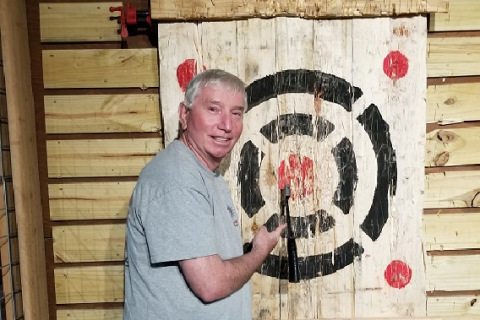Body, Mind and Spirit: Surviving Mesothelioma

When we’re diagnosed with an illness like mesothelioma, our immediate focus tends to be on the physical realities of our situation. We tend to be less consciously aware of our mental and spiritual states and their importance, at least in the beginning.
Whether we define our spiritual state in terms of our faith or our personal will, I personally believe it’s of the utmost importance to give attention to our mental and spiritual condition as well. Our emotions can be sitting on a ragged edge.
We know we can’t give in, but mesothelioma can put us to the test in every way imaginable – physically, mentally, emotionally and financially. It’s important for both survivors and caretakers alike to care for your physical, mental and spiritual health.
Pay attention to what you’re feeling. Be aware, to the best of your ability, of your own mental state.
Trusting Your Doctors
The first step is to listen to your mesothelioma doctors and medical care team. It never ceases to amaze me how many people simply won’t do what their doctor advises.
If you aren’t seeing a specialist with experience in mesothelioma, Patient Advocates can connect you with top specialists in the field. Find the best doctor and medical care team that you can. Then trust them to treat you.
A lack of trust in the experts we choose to care for us can originate in our mental health and spiritual state. This lack of faith can seriously impact our physical health too.
If we remain in denial about our condition or allow doubt and fear to rule our decision making, it will undermine our treatment plan. Anger, cynicism, anxiety and depression can drastically affect our ability to continue on a path to recovery.
Mesothelioma treatments can be tough, and things may look bad, but there is hope. Don’t give up too soon!
Grief and Finding What Uplifts You
The grieving process can start as soon as a mesothelioma survivor loses hope that they’ll recover or a caretaker loses hope that they’ll be able to help their loved one. In my experience, it’s not for ourselves that we grieve. We grieve for our loved ones. And we often feel powerless in the face of our circumstances.
The hardest part of my mesothelioma journey has been seeing my loved ones suffering, especially my wife. While we do believe that in the grand scheme of things all is well, we do sometimes experience moments of hopelessness and grief.
One of the most powerful sentences in the Bible is one of the shortest: “And Jesus wept.” Even knowing that he was going to raise Lazarus from the dead, he nonetheless mourned with others.
Something deep inside tells us death isn’t natural, yet at the same time we know it’s part of the reality of this world. What can we do to live, to survive and to even thrive in our circumstances?
For my wife and I, prayer is an indispensable part of life. And thanksgiving is central to that prayer.
It’s easy to get bogged down in the negatives, but it’s much better to remember the good things. It doesn’t matter if you “feel it” when you’re praying. Do it anyway.
Anything that creates stress, induces negative feelings or triggers unpleasant thoughts or memories just adds to the load that we are already carrying. So many things that we liked – music, movies, books, etc. – or perhaps even barely noticed before, can really drag us down now.
Listen to, watch and read things that uplift you. Remember the blessings, and don’t let the things of this world drag you down.
Accepting Help
Caregivers and survivors can help one another to see the signs of mental health challenges. It’s important to be receptive to being helped. This goes for caretakers as well as patients.
There are support groups for survivors and there are also support groups for caregivers. These forums create spaces for people with similar experiences in their mesothelioma journeys to connect and uplift one another. There are a number of additional family resources available as well. Reaching out to the team of Patient Advocates at The Mesothelioma Center can also help you connect with available experts and resources.






